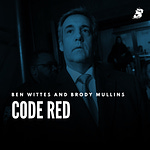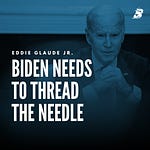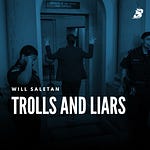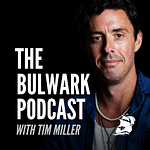Trump keeps undermining his own defense, but he's not wrong that if he wins, he can make the cases against him go away. Plus, John Durham gets humiliated again, and justice was served on behalf of police officer Michael Fanone. Ben Wittes is back with Charlie Sykes for The Trump Trials.
Share this post

Trump’s TV Strategy
www.thebulwark.com
Trump’s TV Strategy
Ad-Free Version
Jun 22, 2023
∙ Paid
The Bulwark Podcast
Audio
Tim Miller and guests discuss the latest political news for the flagship podcast of the Never Trump movement and the reality-based community. Every weekday we provide insightful analysis, political hot-takes, an unabashed defense of liberal democracy and long-form interviews that cut through the "both-sides" BS. Plus a few laughs to help you wash down the crazy.
An ad-free edition is exclusively available for Bulwark+ members.
Tim Miller and guests discuss the latest political news for the flagship podcast of the Never Trump movement and the reality-based community. Every weekday we provide insightful analysis, political hot-takes, an unabashed defense of liberal democracy and long-form interviews that cut through the "both-sides" BS. Plus a few laughs to help you wash down the crazy.
An ad-free edition is exclusively available for Bulwark+ members.Listen on
Substack App
Apple Podcasts
Spotify
YouTube Music
YouTube
Overcast
Pocket Casts
RSS Feed
Recent Episodes













